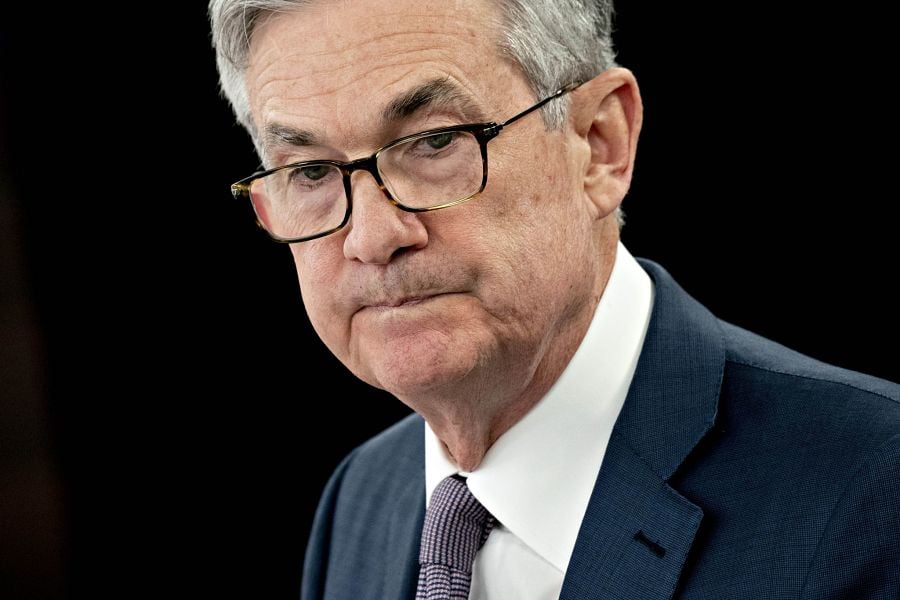

Federal Reserve chair Jerome Powell signaled policymakers will wait longer than previously anticipated to cut interest rates following a series of surprisingly high inflation readings.
Powell pointed to the lack of additional progress made on inflation after the rapid decline seen at the end of last year, noting it will likely take more time for officials to gain the necessary confidence that price growth is headed toward the Fed’s 2 percent goal before lower borrowing costs.
If price pressures persist, he said, the Fed can keep rates steady for “as long as needed.”
“The recent data have clearly not given us greater confidence and instead indicate that is likely to take longer than expected to achieve that confidence,” Powell said Tuesday in a panel discussion alongside Bank of Canada Governor Tiff Macklem at the Wilson Center in Washington.
“Given the strength of the labor market and progress on inflation so far, it is appropriate to allow restrictive policy further time to work and let the data and the evolving outlook guide us,” Powell said.
The Fed chair's remarks represent a shift in his message following a third straight month in which a key measure of inflation exceeded analysts’ forecasts. It also shows officials see little urgency to cut rates and suggests that any reductions in 2024 may come relatively late in the year, if at all.
Policymakers narrowly penciled in three interest-rate cuts in forecasts published last month, but investors are now betting on just one to two cuts this year, futures markets show. The Federal Open Market Committee, the group of officials that sets interest rates, next meets April 30-May 1.
Treasury yields remained higher, while the S&P 500 held lower.
The US economy continues to surprise Fed officials with its resilience. Employers added more than 300,000 jobs in March — the most in nearly a year — and retail sales topped expectations. That strength has coincided with a pickup in price pressures in 2024, raising concerns about a stalling in progress toward the central bank’s inflation goal.
Earlier Tuesday, Fed Vice Chair Philip Jefferson said he expects inflation will continue to moderate with interest rates at their current level but persistent price pressures would warrant holding borrowing costs high for longer. Richmond Fed President Thomas Barkin said some recent data, including the consumer price index, has not “been supportive” of a soft landing.

Insiders say the Wall Street giant is looking to let clients count certain crypto holdings as collateral or, in some cases, assets in their overall net worth.

The two wealth tech firms are bolstering their leadership as they take differing paths towards growth and improved advisor services.

“We think this happened because of Anderson’s age and that he was possibly leaving,” said the advisor’s attorney.

The newly appointed leader will be responsible for overseeing fiduciary governance, regulatory compliance, and risk management at Cetera's trust services company.

Certain foreign banking agreements could force borrowers to absorb Section 899's potential impact, putting some lending relationships at risk.
How intelliflo aims to solve advisors' top tech headaches—without sacrificing the personal touch clients crave
From direct lending to asset-based finance to commercial real estate debt.
